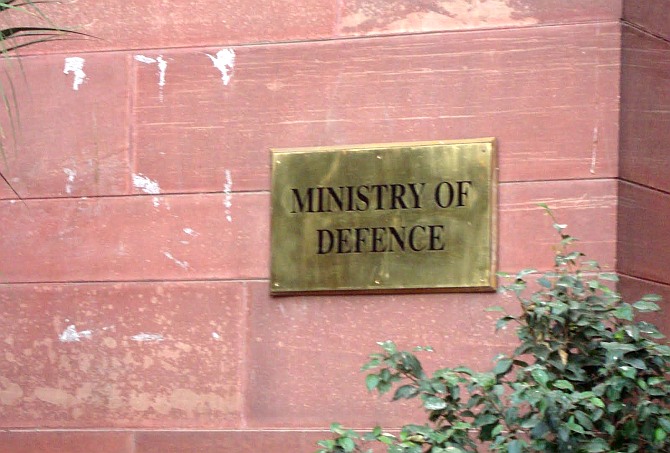The question at the heart of the FDI dilemma is: Should the government regard the defence industry as just another avenue for creating manufacturing jobs? Or should the government nurture a defence industry as a national strategic objective?
After the UPA tried unsuccessfully since 2010 to raise the 26 per cent cap on foreign direct investment in defence production, a move that indigenous defence companies and former Defence Minister AK Antony resisted staunchly, the new government has initiated a fresh attempt along the same lines.
In 2010, the department of industrial policy and promotion --- at the behest of Commerce Minister Anand Sharma --- had pushed to raise the FDI cap to 74 per cent. This time, under Nirmala Sitharaman, the DIPP has mooted three separate options in a cabinet note --- proposing 49%, 74% or 100% FDI.
Commerce ministry sources say that, given the new government’s focus on promoting manufacture to generate employment, and with a new defence minister who is less protective of indigenous defence industry, the international defence industry’s longstanding demand to lower entry barriers into India might well be granted.
Even so, there will be stout resistance from the department of defence production, and from an indigenous defence industry that worries that the unfettered entry of international vendors would wipe out fledgling Indian defence companies.
“Please name one country that allows foreign defence companies unfettered access to the market. America theoretically allows 100 per cent FDI, but its laws mandate that every single employee must be a US national and the company must operate exclusively on US soil. India hasn’t the means to enforce such rules, and foreign companies will take full advantage,” says the CEO of a major Indian private sector defence company.
So watertight are the US laws that the Tel Aviv based president & CEO of, say Israeli company Elbit is required to take Washington’s permission before he can visit his own company facilities that operate in the US.
Furthermore, say defence industry CEOs, there is no evidence that increasing FDI provides any benefit to an industry. They cite the example of telecom, where permitting 100 per cent FDI has failed to galvanize the emergence of telecom manufacture. To this day, there is no significant Indian manufacturer of telecom equipment.
In 2001, the DIPP permitted private sector participation in the defence industry, vide Press Note No 4 of 2001, which notified several measures for liberalising the FDI regime of that period. Paragraph (iii) of that notification said, “The defence industry sector is opened up to 100% for Indian private sector participation with FDI permissible up to 26%, both subject to licensing.”
A 26 per cent holding allows the foreign partner only a veto over major policy decisions. Were the FDI cap raised to 49 per cent, the foreign company would still not control the company or the board, but would be able to repatriate a higher share of the profit. A significant FDI limit rise would be if foreign companies were permitted 51 per cent or above. And were 100 per cent FDI permitted, foreign entities would be able to buy out Indian companies in full.
Defence ministry officials and major Indian defence industries want to retain the 26 per cent cap, since it allows the Indian partner to demand technology infusion from the foreign original equipment manufacturer.
Indian industry sources point out that, while India proposes to raise FDI caps, Germany has recently reduced its defence FDI cap from 26 per cent to 25 per cent in order to further curtail the rights and powers of the foreign partner.
Citing an agreement signed this week between Samsung, and Larsen & Toubro, officials say the Korean defence major would have probably chosen to go it alone, had 100 per cent FDI been allowed.
“Since L&T is the controlling partner, it will ensure that Samsung brings in the technology, which will be translated by low-cost Indian workers into cheaply priced defence equipment. That is the model to follow,” says the official who requested not to be named.
Foreign OEMs deny this, arguing that they would be ready to bring in high-end technology, and to source Indian-built defence equipment for their global supply chains, if only they had more control over the joint venture company.
Indian CEOs counter this with the question: Can you name one foreign OEM that has willingly transferred technology to India? They point out that 72 multinational corporations employ two lakh Indian engineers in research and development centres in places like Bangalore, Hyderabad and Pune. Yet none of the technology that they have developed is available to India.
The question at the heart of the FDI dilemma is: Should the government regard the defence industry as just another avenue for creating manufacturing jobs? Or should the government nurture a defence industry as a national strategic objective? A government focused on job creation might not be inclined to treat defence as a special sphere
